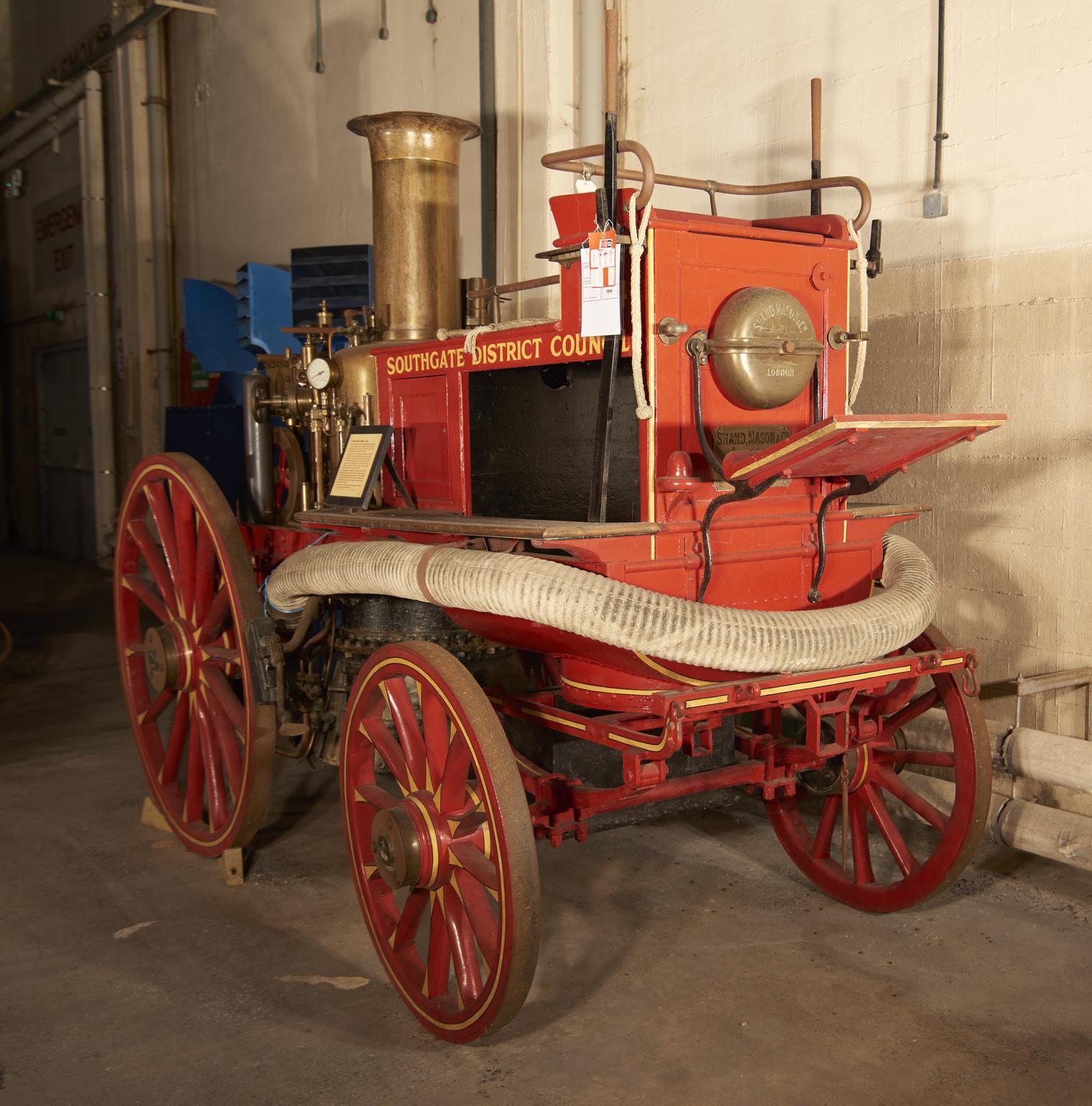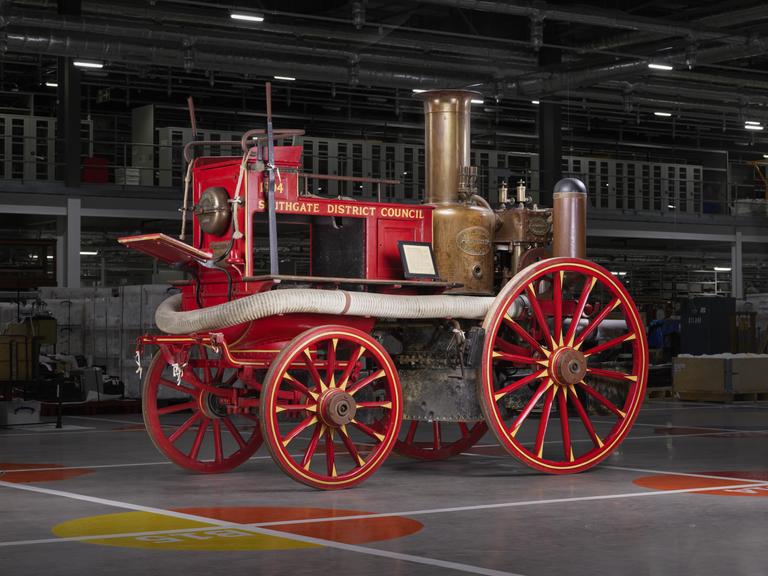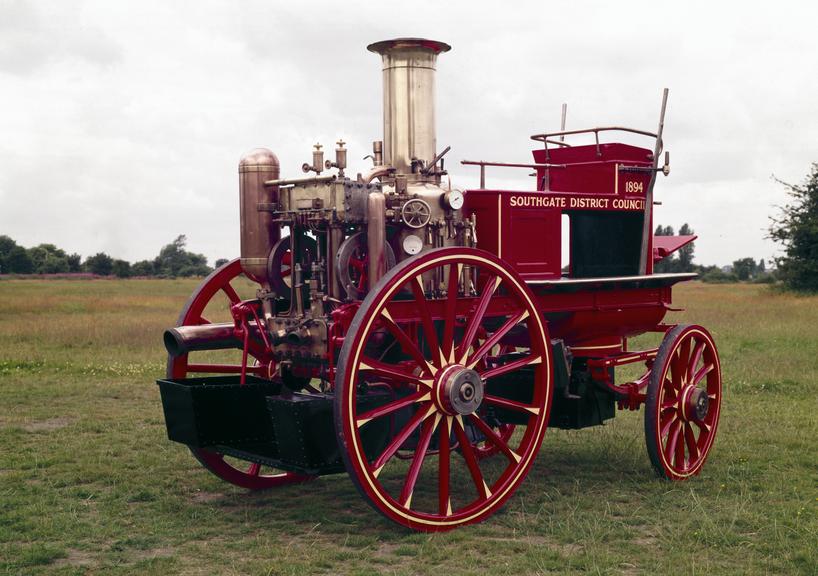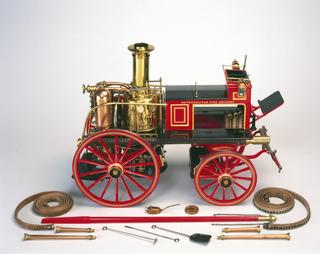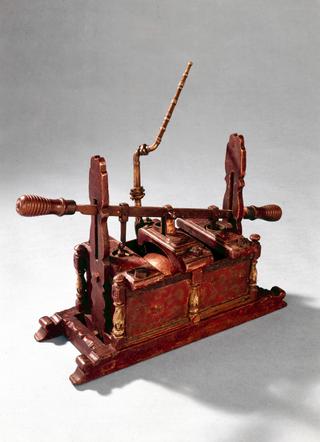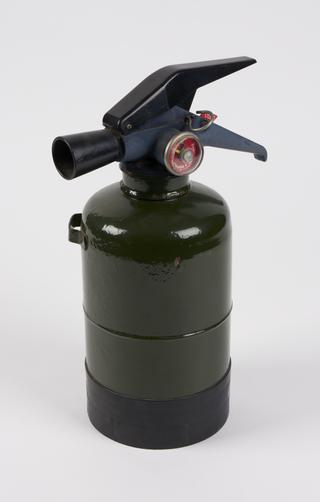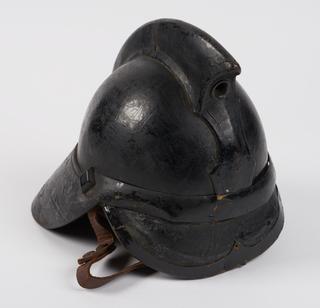Shand Mason horse-drawn steam fire engine, "1894 Southgate Borough Council", with one length of suction hose and strainer. Capable of pumping 350 gallons of water in 1 min to a height of 160 ft.
This is an example of the Double Vertical engine introduced by Shand, Mason and Co. in 1889, which remained the standard type of horse-drawn fire engine until it was superseded by the petrol-motor fire engine. This particular model is rare, as only 20 were made. When this fire engine was acquired, it was believed to be one of the last surviving examples. It was delivered new to Southgate District Council in 1894. It was horse-drawn until 1912 when a drawbar was fitted, and it was towed by a motor tender.
The Double Vertical was extremely successful when it was first introduced and London County Council commissioned Shand Mason & Co to construct the Double Vertical with a capacity of 450 gallons a minute which was a more powerful machine than those already in use. The engine was designed to be light and portable and well suited to rough terrain or hilly districts. Steel was used where possible to make the engine strong.
This example was capable of pumping 350 gallons of water per minute to a height of 160 feet. It had two double-acting steam cylinders working directly on to two double-acting pumps placed vertically below them. At each end of the crankshaft are eccentrics for working the slide-valves of the steam cylinders. The cranks are set at right angles to allow starting in any position, and small fly wheels to ensure smooth running are fitted at each end of the crankshaft.
The furnace door is placed on the side towards the front instead of at the back of the boiler as in earlier engines. This arrangement enabled the stoker and the engineer to work without interference, and by allowing the machinery to be placed lower, increased the stability of the engine when travelling.
